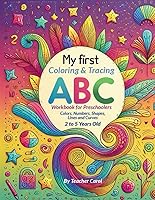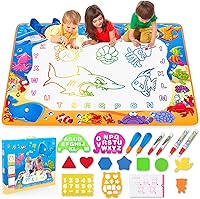Last Updated on February 1, 2025 by Lila Sjöberg

As a parent, you’re probably always on the lookout for ways to give your child a head start in life. And if you’re considering raising a bilingual child, you’re on the right track! Not only will bilingualism broaden your child’s cultural horizons and improve their cognitive skills, but it will also open up a world of opportunities for them in the future.
As a mom who’s passionate about language learning, I’ve always been fascinated by the benefits of bilingualism. And when it comes to choosing a second language, I truly believe that French is an excellent choice. In this article, I’ll share with you why I think French is a great language for kids to learn, and provide some tips and advice on how to raise a bilingual child.
Allons-y! [ah-lohn-zee – let’s go in French]
The Benefits of Bilingualism
So, why is bilingualism such a big deal? For starters, it’s been shown to improve cognitive skills like memory, problem-solving, and concentration. Bilingual children also tend to perform better academically, especially in reading and writing. And let’s not forget about the social and cultural benefits! Bilingualism can help your child connect with people from different backgrounds and cultures, and give them a more nuanced understanding of the world.
But what really excites me about bilingualism is the long-term benefits it can bring. In today’s globalized world, speaking multiple languages can be a major asset in the job market. And let’s not forget about the travel opportunities! Imagine being able to communicate with locals in their own language, and experiencing the culture more authentically.
Why French is an Excellent Choice
So, why French? Well, for starters, French is an official language in several international organizations, including the United Nations, the European Union, and the International Olympic Committee. It’s also the language of love, art, fashion, and cuisine – and who wouldn’t want to learn about those things? eh?😊
But seriously, French is a beautiful language that’s spoken by over 274 million people around the world. It’s an official language in several countries, including France, Canada, Belgium, and Switzerland, and it’s widely used in international business, diplomacy, and education.
How to Raise a Bilingual Child in French
So, how do you raise a bilingual child in French? Here are a few tips to get you started:
- Start early: Introduce French to your child from birth, or as soon as possible. The earlier you start, the better! Remember, at this age, kids are sponges!
- Immersion: Surround your child with French language and culture as much as possible. Watch French movies, listen to French music, and cook French food together.
- Consistency: Establish a routine and stick to it. Set aside time each day to practice French with your child, and make it a fun and engaging experience.
- FUN: Make language learning fun! Use games, puzzles, and activities to help your child learn French in a playful way.
And don’t worry if you’re not fluent in French yourself – there are plenty of resources available to help you and your child learn together. You can find language learning apps, books, and workbooks that can help you get started. This totally free web app to learn French is a good start.
Overcoming Common Challenges
Of course, raising a bilingual child can come with its challenges. One of the most common obstacles is language mixing – when your child starts to mix languages or use incorrect grammar. But don’t worry, this is a normal part of the language learning process! Here are a few tips to help you overcome language mixing:
- Be patient: Language mixing is a normal part of the language learning process, and it will take time for your child to develop their language skills.
- Encourage communication: Encourage your child to communicate in French as much as possible, even if they make mistakes.
- Use positive reinforcement: Praise your child for their efforts and encourage them to keep practicing.
Another challenge you might face is resistance – when your child refuses to speak the second language. But with patience, consistency, and positive reinforcement, you can help your child overcome this hurdle and develop a love for French. Here are a few tips to help you overcome resistance:
- Make it fun: Make language learning fun and engaging, and your child will be more likely to want to participate.
- Use rewards: Use rewards and incentives to encourage your child to practice their French language skills.
- Be a role model: Show your child that speaking French is fun and important by practicing it yourself.
- Use great and safe dedicated English/French videos on Youtube
Conclusion
Raising a bilingual child in French can be a rewarding and enriching experience for the whole family. Not only will it give your child a head start in life, but it will also open up a world of cultural and linguistic possibilities. If you’re looking for a valuable resource to help you get started, I recommend checking out “My First Bilingual English / French preschool workbook“. This workbook is designed to help children learn French in a fun and interactive way, with engaging activities and exercises that will help them develop their language skills including also free access to French audio files to perfect the pronunciation!

With the right resources and support, you can help your child become fluent in French and unlock a world of opportunities for them. So why not start today? Begin by introducing French to your child, and watch as they grow and develop their language skills. With patience, consistency, and positive reinforcement, you can help your child become a confident and fluent French speaker.
And remember, it’s never too early or too late to start teaching your child a second language. Whether you’re a native French speaker or just starting out, you can help your child develop a love for the French language and culture. So don’t hesitate to get started, and watch as your child thrives in a bilingual environment.
I hope you’ve enjoyed this article, and I wish you and your child all the best on your bilingual journey! If you have any questions or comments, please don’t hesitate to reach out. I’d love to hear from you and help in any way I can.











